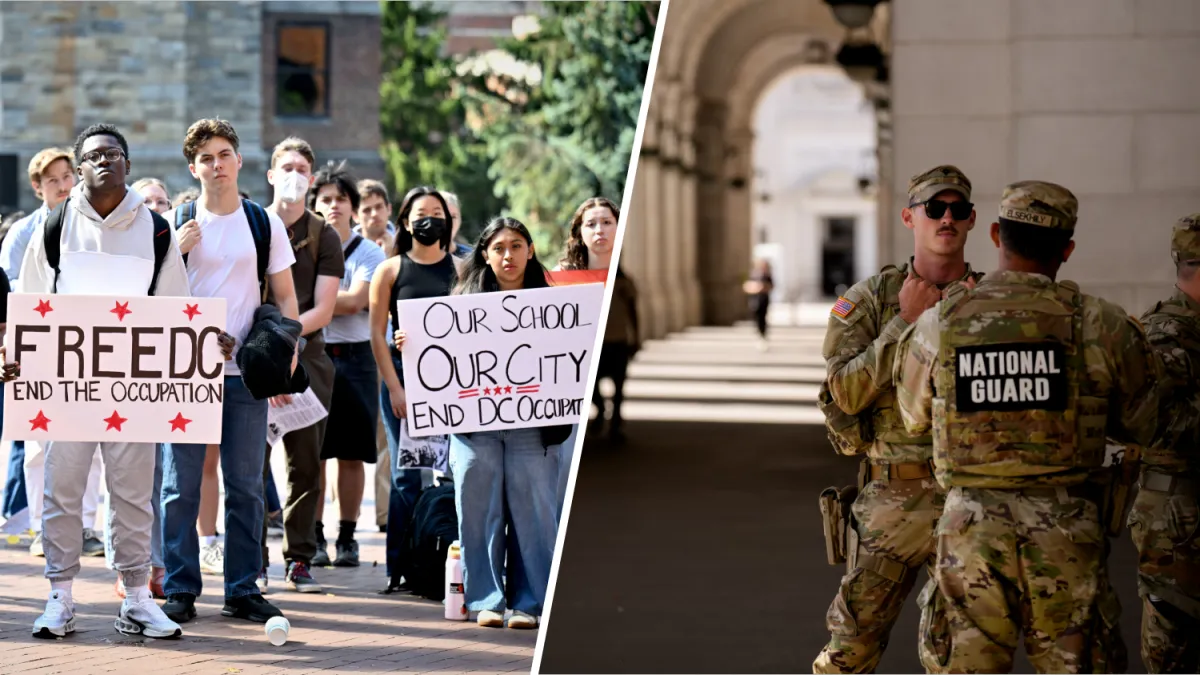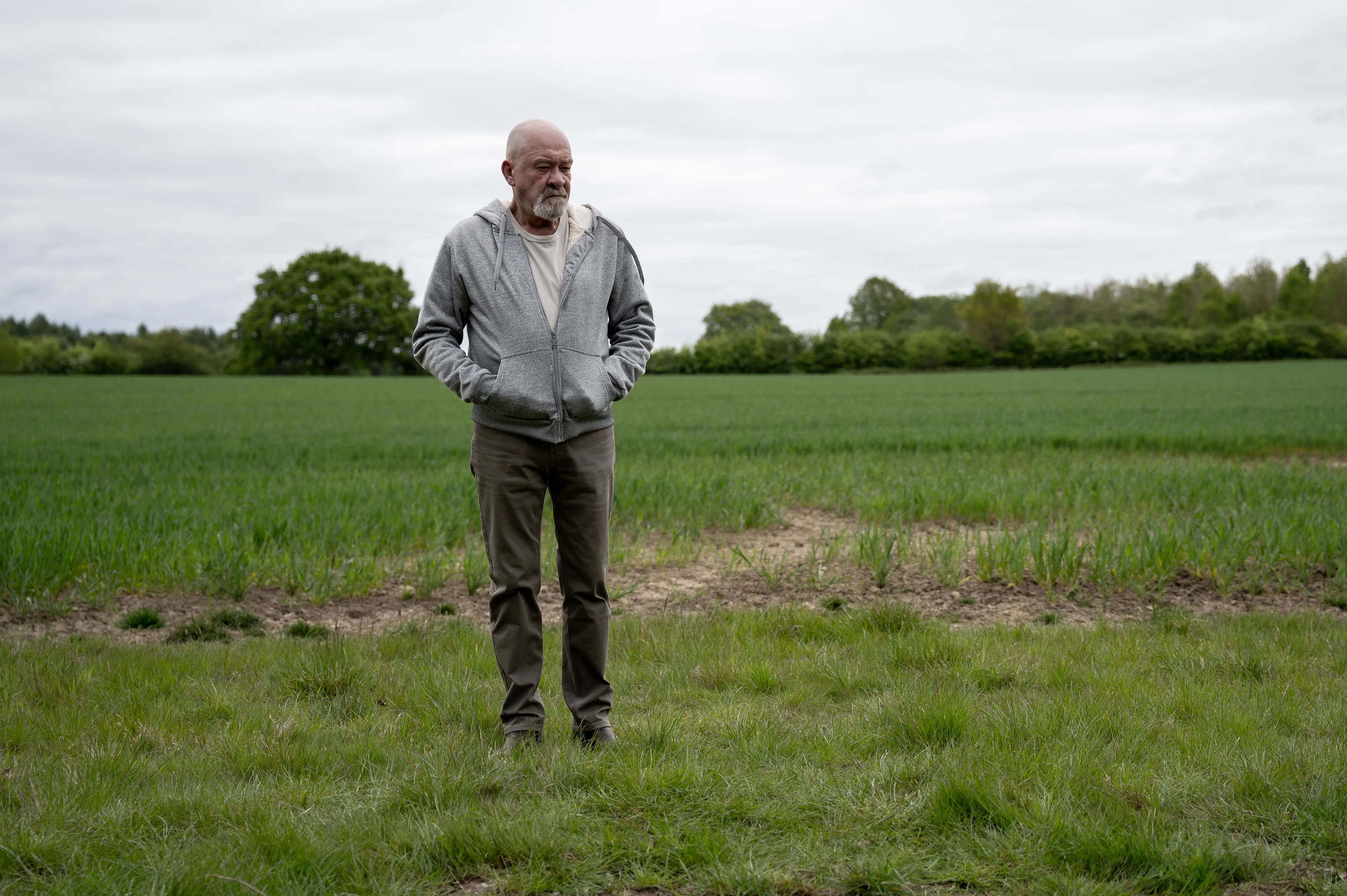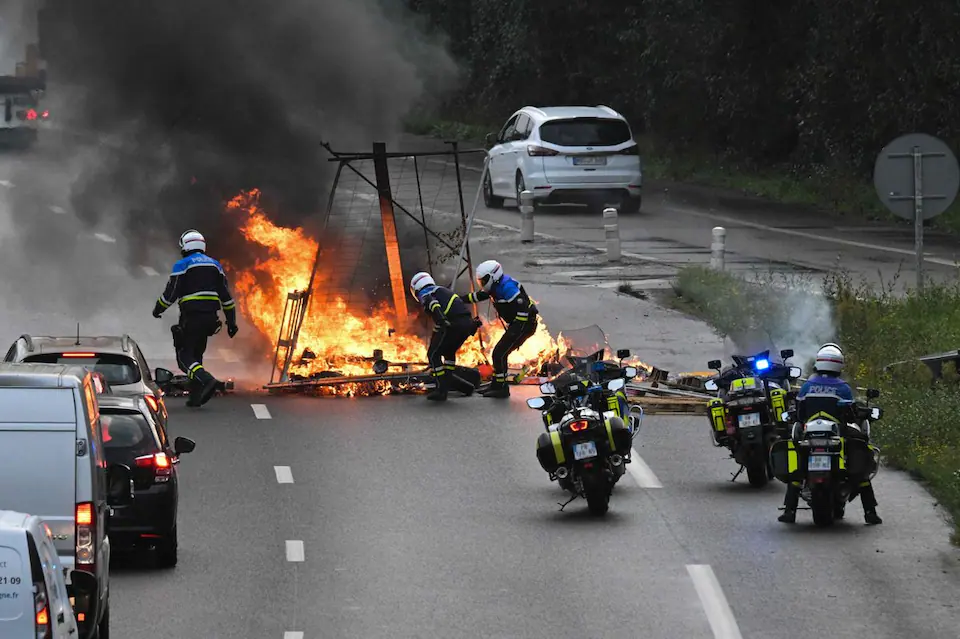By Gary Fields | The Associated Press,Leah Askarinam | The Associated Press and Paul Wagner,News4 reporter
Copyright nbcwashington

President Donald Trump’s emergency order over Washington, D.C., which federalized its police force and launched a surge of law enforcement into the city, is set to expire overnight Wednesday after Congress failed to extend it.
But the clash between Republicans and the District over its autonomy is expected to intensify, with a House committee beginning to debate 13 bills that would wrest away even more of the city’s control if approved. One bill would make the D.C. attorney general appointed by the president and not elected by residents.
Mayor Muriel Bowser’s office said the order expires at midnight. The National Guard and some other federal agencies will continue their deployment and it’s not clear when that might end.
Trump’s takeover of Washington’s policing and Wednesday’s discussions in the House underscore how interlinked the capital is with the federal government and how much the city’s capacity to govern is beholden to federal decisions.
The crime emergency so far
Using his authority under the Home Rule Act, Trump activated the National Guard and took control of D.C. police on Aug. 11 for what he described as a crimefighting initiative. The Home Rule Act limits that power to 30 days.
Local police joined hundreds of federal law enforcement officers and agents on sweeps and roundups and other police operations. About 2,000 members of the National Guard from D.C. as well as seven Republican-led states were also part of the surge of law enforcement.
Crime has dropped during the surge, and hundreds of people have been arrested in the past month, according to figures from the White House and D.C. police. But data also showed crime was falling in the lead up to the federal takeover.
Congress, satisfied by the steps that Bowser has taken to ensure that the cooperation with the city will continue, decided not to extend the crime emergency.
At an event on Monday in Northeast D.C., Bowser said she’d have more to say later this week about the end of the crime emergency. She emphasized one specific change.
“MPD is not compelled to provide MPD services as directed by the president, that’s what changes,” she said, referring to D.C.’s Metropolitan Police Department.
Bowser ordered an indefinite coordination with federal law enforcement, noting in an executive order that violent crime had “noticeably decreased.”
“It’s laid out what federal agencies we work with. It’s not confusing. So, I am not going to turn this into a re-explainer of my mayor’s order. I’ve done it,” she said to applause in the room.
House takes up bills on DC control
The bills the House Oversight Committee will consider could turn home rule upside down.
The District of Columbia Cash Bail Reform Act would require cash bail or bail bonds for all defendants charged with certain enumerated public safety and order crimes.
Another bill would repeal D.C.’s Incarceration Reduction Amendment Act of 2016 and the Second Chance Amendment Act of 2022, which allows people convicted of serious crimes before they turned 18 to petition the court for a sentence reduction after serving at least 15 years.
A third bill, called the District of Columbia Attorney General Appointment Reform Act, would make the D.C. attorney general appointed by the president and not elected by residents.
Even if the bills pass the committee and House, the question is whether they can get through the filibuster-proof Senate. D.C. activists have already begun lobbying Senate Democrats.
Bowser urged the leaders of the House Oversight Committee to reject those proposals.
She argued that a bill sponsored by Rep. Paul Gosar, a member of the conservative House Freedom Caucus, would “make the District less efficient, competitive, and responsive.” She said she looks forward to working with the committee to build a “productive partnership” that “respects the will of D.C. residents and honors the principles of home rule.”
Republican Rep. Ron Estes and several Republican colleagues said they want their constituents to feel safe visiting the capital, and noted the recent murder of an intern who worked in Estes’ office. “We want to make sure that we have a capital that Americans are proud of,” Estes said.
“All of them would be an affront to home rule. We believe that our laws affecting the District should be made by the District,” Bowser said.
The District is granted autonomy through the home rule agreement passed in 1973 but federal political leaders retain significant control over local affairs, including the approval of the budget and laws passed by the D.C council.
Bowser has said repeatedly that statehood, a nonstarter for Republicans in Congress, is the only solution.
Get the D.C. area’s top news and weather delivered to your inbox every morning. Sign up for First & 4Most, our free newsletter.



